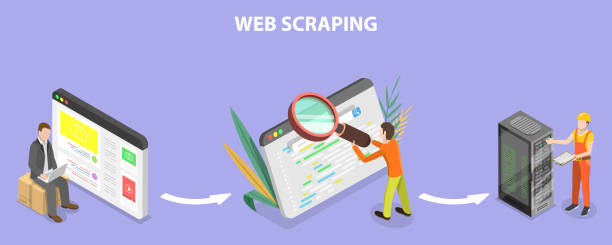Web Scraping Meets Data Management: Best Practices for Handling Large-Scale Data

Strong 8k brings an ultra-HD IPTV experience to your living room and your pocket.
In the digital age, data has become one of the most valuable resources for businesses. From market research to competitive analysis, web scraping enables organizations to collect vast amounts of data efficiently. However, this influx of information can present challenges, particularly when it comes to organizing, storing, and analyzing large-scale data effectively. This is where strong data management practices come into play.
Web scraping and data management go hand in hand, transforming raw data into actionable insights that can drive decision-making and growth. While web scraping focuses on gathering information, data management ensures that the data is structured, secure, and ready for use. Here, we’ll explore the best practices for handling large-scale data collected through web scraping.
Why Data Management Is Essential
Raw data collected through web scraping often lacks structure and may include duplicates, errors, or irrelevant information. Without proper data management, this data can quickly become overwhelming and less useful.
Effective data management is critical for:
Organizing Data: Structuring unorganized data into a format that is easy to access and analyze.
Ensuring Data Quality: Cleaning datasets to remove inaccuracies and inconsistencies.
Facilitating Scalability: Handling increasing volumes of data without performance issues.
Maintaining Compliance: Adhering to data security and legal regulations.
By integrating web scraping with effective data management, businesses can turn raw data into valuable insights that fuel growth.
Best Practices for Managing Web-Scraped Data
Define Clear Objectives
Start by identifying the specific data you need and its purpose. Setting clear objectives ensures that the data collected aligns with your goals and eliminates unnecessary clutter.
Use Reliable Data Cleaning Tools
Scraped data often requires refinement to ensure accuracy and usability. Tools and techniques for cleaning data—such as removing duplicates and standardizing formats—are essential to maintain high-quality datasets.
Leverage Scalable Storage Solutions
Managing large-scale data requires robust and scalable storage systems. Cloud-based platforms, such as Google Cloud or AWS, offer flexible storage options that can grow with your data needs.
Implement Data Integration Pipelines
Integrating scraped data into your existing systems—whether it’s a CRM, analytics platform, or database—is critical for seamless operations. Automated pipelines ensure a smooth flow of data across systems, saving time and reducing errors.
Focus on Data Security
Protecting data from unauthorized access or breaches is a priority. Implement encryption, user access controls, and regular audits to ensure sensitive data remains secure.
Optimize and Monitor Performance
Regularly review your data management workflows for efficiency. Optimize storage systems, update processes, and ensure your pipelines are capable of handling growing data volumes without issues.
The Benefits of Combining Web Scraping and Data Management
When web scraping is paired with effective data management, businesses unlock several advantages, including:
Enhanced Accuracy: Clean, structured data ensures reliable insights.
Faster Decision-Making: Well-managed data allows for quicker analysis and informed actions.
Scalable Operations: Proper systems and processes ensure you can manage growing data needs seamlessly.
Compliance Readiness: Secure and well-documented data management helps adhere to legal and ethical standards.
Conclusion: Simplify Data Management with Expert Support
Handling large-scale data requires the right combination of technology and expertise. For businesses looking to streamline this process, GroupBWT offers tailored solutions to meet your unique needs. From collecting data through web scraping to managing it securely and efficiently, our services help you unlock the full potential of your data.
To learn more about how we can empower your business, visit groupbwt.com and take the first step toward smarter data management.
Note: IndiBlogHub features both user-submitted and editorial content. We do not verify third-party contributions. Read our Disclaimer and Privacy Policyfor details.







